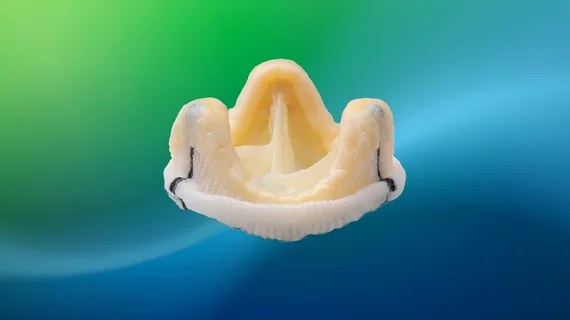Abbott’s new surgical solution for aortic valve disease gains FDA approval
Abbott has received U.S. Food and Drug Administration (FDA) approval for its Epic Max stented tissue valve for aortic valve disease. The newly approved bioprosthetic valve represents the latest addition to Abbott’s Epic surgical valve platform. It was designed to treat patients presenting with aortic stenosis or aortic regurgitation, and it can be used to replace previously implanted aortic heart valves if necessary.
“The aortic valve is one of the heart valves most commonly impacted by cardiovascular disease, frequently requiring replacement,” Joseph E. Bavaria, MD, a professor of surgery with the University of Pennsylvania in Philadelphia, said in a statement. “Abbott's Epic Max design optimizes blood flow for patients and has a low profile that makes future cardiac interventions, if necessary, easier.”
“With Epic Max, we're accomplishing two important things: First and foremost, we're improving heart valve hemodynamics, which is the purpose of the procedure. Secondly, we're preserving options and ability for patient lifetime disease management, an ever more critical point of consideration in device therapy selection,” added Michael Dale, senior vice president of Abbott's structural heart business.
Abbott has also shared detailed safety information related to the Epic Max device. The document, available here, includes indications for use and a list of adverse events that have been linked to the use of bioprosthetic heart valves.

